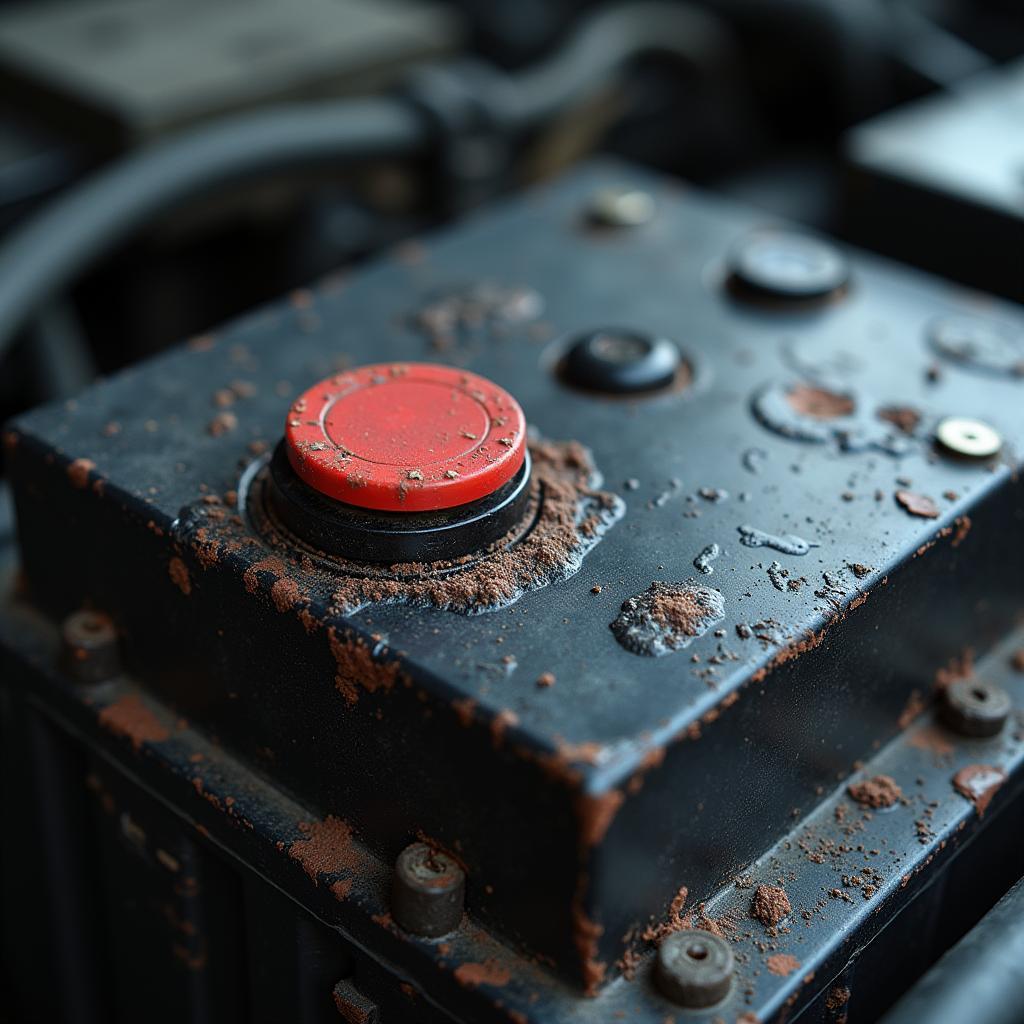A pungent, stinging odor in your car? If this sounds familiar and the smell reminds you of saltpeter, you shouldn’t hesitate to get to the bottom of it. While the term “saltpeter smell” is often associated with old walls and damp cellars, it can also signal a serious problem in your car.
What Exactly is that “Saltpeter Smell” in Your Car?
Before we delve into the causes and solutions, let’s first clarify what exactly is meant by “saltpeter smell” in a car. In reality, it’s often not true saltpeter, but rather the odor of ammonia (NH3). This pungent, unpleasant smell can stem from various issues, most of which are related to the car’s battery.
The Car Battery as the Source of Ammonia Smell
The most common cause of ammonia smell in a car is a faulty or overcharged battery. During the charging and discharging process, the battery can release hydrogen gas. When this gas reacts with other substances, it can produce ammonia, which is what creates that characteristic “saltpeter” odor.
 Defective Car Battery
Defective Car Battery
However, besides a faulty battery, other factors can also cause an ammonia smell in your car, such as:
- Overcharging: Overcharging in the vehicle’s electrical system, perhaps due to a faulty alternator, can also lead to the production of ammonia.
- Leaking Coolant: Some types of coolant contain ammonia and can release the odor into the cabin if there’s a leak.
- Contamination in the AC System: In rare cases, bacteria and fungi can grow within the air conditioning system, which may produce ammonia.
Dangers and How to Deal with Ammonia Smell in Your Car
Ammonia is not just unpleasant; it’s also harmful to your health. In higher concentrations, it can cause irritation to the respiratory tract, eyes, and skin. Therefore, you should not ignore the smell in your car, but have the underlying cause addressed as soon as possible.
What To Do About Ammonia Smell in Your Car
If you detect an ammonia smell in your car, you should first do the following:
- Open Windows: Ensure adequate ventilation in the vehicle’s cabin.
- Check the Battery: Inspect the car battery for visible damage, corrosion, and any leaking fluid.
- Visit a Mechanic: Have the source of the odor inspected and repaired by a professional at a workshop or repair shop.
Prevention is Key: Tips to Avoid Ammonia Smell
You can minimize the risk of ammonia smell in your car with a few simple steps:
- Regular Battery Checks: Have your car battery inspected periodically at a workshop.
- Proper Battery Charging: Avoid overcharging the battery.
- AC System Maintenance: Have your car’s air conditioning system regularly maintained and disinfected.
Conclusion: Take Ammonia Smell in Your Car Seriously
What’s commonly referred to as a “saltpeter smell” in a car usually points to an issue with the battery or the electrical system. Since ammonia can be harmful to your health, you shouldn’t ignore the odor; have the underlying cause addressed as soon as possible. Regular checks and maintenance can help minimize the risk of this ammonia smell in your car.
Have more questions about car repair? You can find numerous helpful articles and information on autorepairaid.com.
Need Professional Help?
Contact us! Our car repair experts are ready to assist you.

